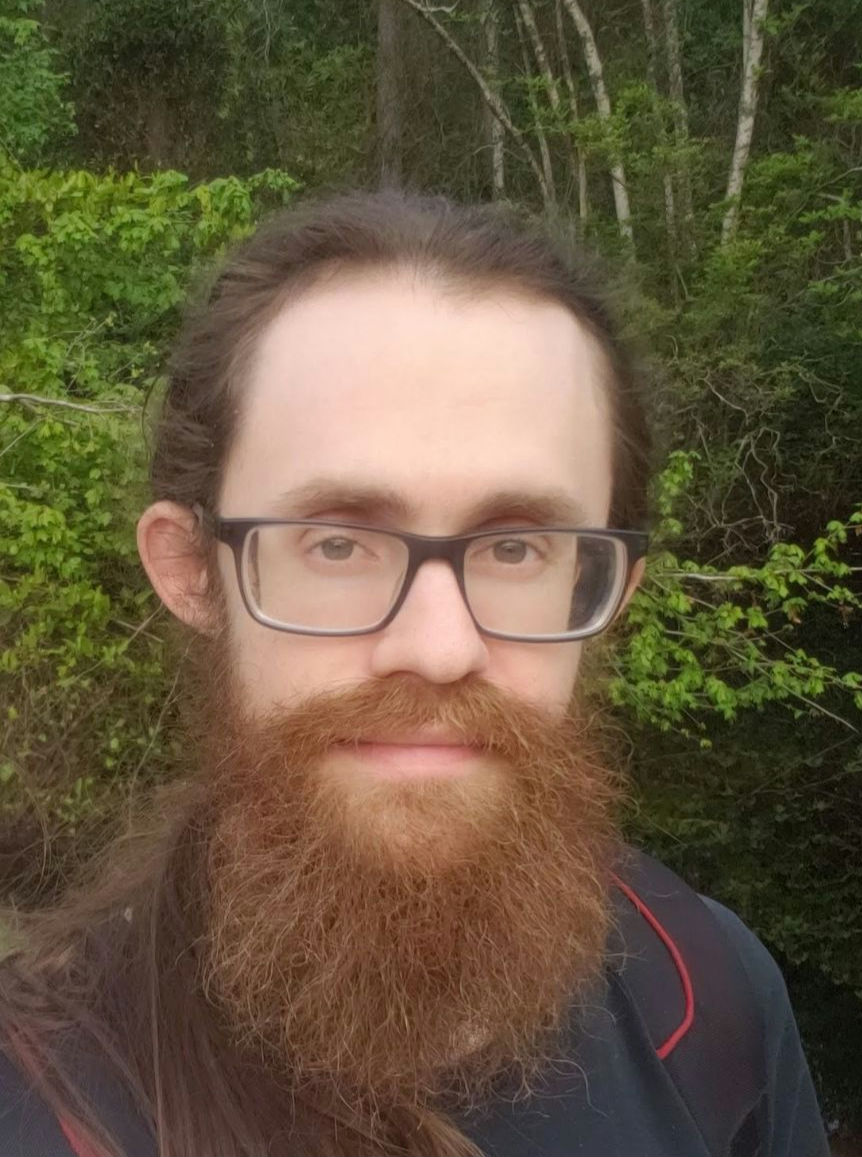 |
|
Christopher Dilks
Christopher Dilks received a Ph.D. in Physics from Penn State University in 2018, working with the STAR Collaboration. He then worked as a
postdoctoral associate at Duke University from 2019 to 2023, with the CLAS and ePIC Collaborations. In 2023 he joined Jefferson Lab as a staff
scientist. At STAR he focused on analysis and operation of the Forward Meson Spectrometer (FMS), studying spin asymmetries in neutral pion
production from polarized proton-proton scattering. His dissertation presents a measurement of the longitudinal double-spin asymmetry, sensitive
to the gluon helicity distribution at low x. He also helped to maintain and upgrade the FMS during the STAR data-taking periods from 2012 to 2017.
In CLAS12 he focused on SIDIS dihadron spin asymmetries, sensitive to parton distribution functions at subleading twist, as well as dihadron
fragmentation functions, which led to the first CLAS12 physics publication. He continues to extend this analysis by comparing partial waves of
these asymmetries from electron-proton scattering to those from electron-deuteron scattering, which allows for flavor separation of the parton
distributions and provides much deeper insight to the fragmentation functions. In ePIC he focused on simulation, reconstruction, and analysis
software development, in particular, on the Dual Ring Imaging Cherenkov (dRICH) detector design. Nowadays at Jefferson Lab he focuses on software
development for Hall B along with continuing his CLAS12 SIDIS analyses.
Current Responsibilities in Hall B:
- Software development
- Quality assurance database (QADB)
Current Research Activities in Hall B:
Selected Publications:
- T. Hayward, C. Dilks et al. (CLAS Collaboration), "Observation of Beam Spin Asymmetries in the Process
ep→eπ+π-X with CLAS12", Phys. Rev. Lett. 126, 152501 (2021).
- J. Adam et al. (STAR Collaboration), "Longitudinal Double-Spin Asymmetries for π0s in the Forward Direction for
510 GeV Polarized pp Collisions", Phys. Rev. D 98, 032013 (2018).
|

